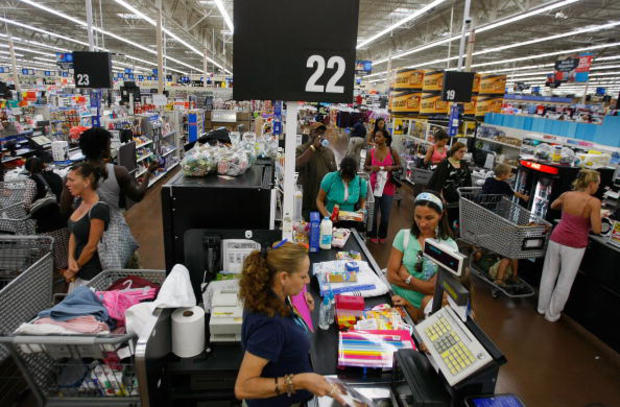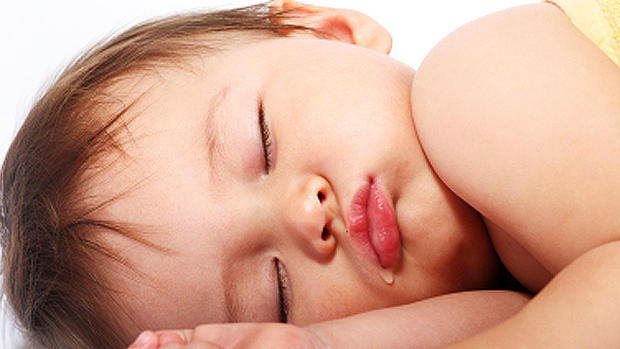Wal-Mart awaits infant formula test results after baby dies
(CBS/AP) COLUMBIA, Missouri - Wal-Mart and health officials awaited results from tests Thursday on a batch of powdered infant formula that was removed from more than 3,000 stores nationwide after a newborn baby who consumed it apparently died from a rare infection.
Sudden infant death: 14 ways parents raise the risk
The source of the bacteria that caused the infection has not been determined, but it occurs naturally in the environment and in plants such as wheat and rice. The most worrisome appearances have been in dried milk and powdered formula, which is why manufacturers routinely test for the germs.
Wal-Mart pulled the Enfamil Newborn formula from shelves as a precaution following the death of little Avery Cornett in the southern Missouri town of Lebanon.
Avery was taken to St. John's Hospital-Lebanon late last week after appearing lethargic and displaying signs of a stomach ache, the Lebanon Daily Record reported. He was later moved to St. John's Hospital-Springfield, and preliminary tests showed that he had contracted a rare bacterial infection, Cronobacter sakazakii. He died Sunday after being taken off life support.
The formula has not been recalled, and the manufacturer said tests showed the batch was negative for the bacteria before it was shipped. Additional tests were under way.
"We decided it was best to remove the product until we learn more," Wal-Mart spokeswoman Dianna Gee said. "It could be returned to the shelves."
Customers who bought formula in 12.5-ounce cans with the lot number ZP1K7G have the option of returning them for a refund or exchange, Gee said.
The product is not exclusive to Wal-Mart. The manufacturer, Mead Johnson Nutrition, declined to answer questions about whether formula from that batch was distributed to other stores.
"We're highly confident in the safety and quality of our products," said Christopher Perille, a spokesman for the company based in the Chicago suburb of Glenview.
A second infant fell ill late last month after consuming several different types of powdered baby formula, but that child recovered, health officials said.
Powdered infant formula is not sterile, and experts have said there are not adequate methods to completely remove or kill all bacteria that might creep into formula before or during production.
Cronobacter sakazakii can be treated with antibiotics, but it's deemed extremely dangerous to babies less than 1 month old and those born premature. The bacteria are "pervasive in the environment," Perille said. "There's a whole range of potential sources on how this infection may have got started."
A spokeswoman for the Food and Drug Administration said the agency is investigating the death, along with the Centers for Disease Control and the Missouri Department of Health.
Investigators have collected samples from the family and are testing unopened formula purchased at stores.
Siobhan Delancey said the FDA gets four to six reports a year of infant infections related to formula and has not found a powder that tested positive since 2002.
The FDA is also investigating the other case of illness, which involved a baby from Illinois whose case was reported in neighboring Missouri. But the agency does not believe there is any connection between the two, Delancey said.
Public health investigators will look at the formula itself, as well as the water used in preparing it and at anything else the baby might have ingested, Perille said.
Only two to three cases a year are reported. New Mexico saw two in 2008, including one infant who died and another who suffered severe brain damage. A Tennessee infant died in 2001 after being infected.
It could be several days before test results are available. The family submitted two types of infant formula for testing - the powdered version and a pre-sterilized, ready-to-eat liquid - as well as the distilled water used to prepare the powdered product.
The Missouri Department of Health says parents should follow World Health Organization guidelines for safely preparing powdered infant formula, Terlizzi said. "This includes washing your hands with soap and water, thoroughly sterilizing all feeding equipment in hot, soapy water and preparing enough formula for only one feeding at a time," she said.
The World Health Organization's powdered infant formula guidelines can be found here.

